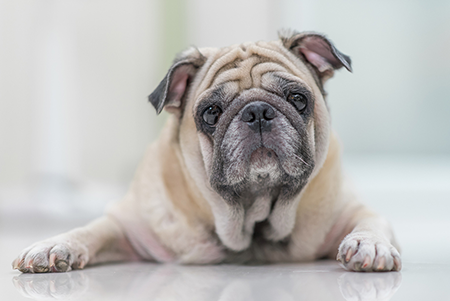The day you brought your pup home, he was full of energy and spent hours racing around the yard and playing with toys. It didn’t take long for him to become part of the family, and you’ve spent countless hours training and playing with him over the years.
But recently, you’ve started to notice some changes in his personality and behavior. He’s having difficulties going up and down the stairs, he seems to have lost interest in playing outside, he’s eating less food, and he’s had a few accidents in the house.
These are all signs that your dog has attained “senior status”. This is a natural transition, but you may have questions and concerns about caring for your dog through this stage of life.
When Do Dogs Become Seniors?
There is no one-size-fits-all formula for determining whether or not your dog has entered their senior years.
Large dog breeds tend to age more rapidly than small dog breeds. A Chihuahua may not be considered a senior until they are 10-12 years old, whereas a Great Dane may become a senior at 5-6 years old. In general, dogs enter their senior years around 7-10 years old.
In addition to breed and size, a combination of nutrition, weight, environment, and genetics will also play a role in how quickly your dog ages.
Senior Dog Health Concerns
Senior dogs face many of the same challenges and lifestyle changes as senior humans. Much like people, aging dogs are often less tolerant of exercise and activity, and may suffer from limited mobility, fatigue, or aching joints.

These changes may be caused or worsened by degenerative diseases such as arthritis. Depending on the severity of your dog’s condition, she may have trouble getting in or out of the car, walking long distances, going up or downstairs, or even getting into a comfortable position for sleep.
As dogs age, their metabolism slows down. Senior dogs are at a higher risk of obesity (which can further complicate joint or muscular issues) and are often more sensitive to changes in temperature.
On the other hand, some senior dogs may suffer from weight loss and muscle degeneration. This can be caused by dental disease, kidney disease, liver disease, endocrine issues, or other conditions.
How to Care for a Senior Dog
Keep your senior dog at a healthy weight. Weight gain and weight loss can both serve as catalysts for other health problems as your dog ages, so keeping them at a healthy weight is essential. This may be achieved by feeding your dog a high-quality diet that is appropriate for their age and lifestyle, and perhaps using supplements to enhance nutrition. A body condition evaluation can determine whether your pet is overweight, underweight, or at a healthy body weight. Ask your veterinarian for an evaluation.
Moderate your senior dog’s exercise. Regular activity is essential for keeping muscles, bones, and joints strong, but it’s also important to make sure your dog doesn’t overexert themself. Their lungs and heart are not as strong as they once were! Be especially careful on hot days, or if your dog is not used to frequent exercise. A walk around the block may be all they need depending on their size, breed and energy level. If your senior dog becomes too sedentary, he may be more prone to obesity and mobility issues.
Be aware of your dog’s bathroom habits. Changes in urination and defecation can be signs of many different health concerns, from stomach and kidney diseases to endocrine issues. You may also notice your pet developing incontinence problems as they age. These are all important changes that you should monitor and discuss with your vet as they occur.
Brush your dog’s teeth regularly. Did you know 85% of all pets develop dental disease by age three? By the time your dog reaches senior status, they may have advanced issues such as bleeding gums and missing teeth. Not only is this painful for your dog, but it can also affect their ability to eat. Regular teeth brushing is essential, but dental treats and toys may help too.
Help your senior dog stay comfortable. Sweaters during colder weather, softer bedding, a ramp over the entryway stairs, rugs on slippery hardwood surfaces – these are all ways you can ensure your dog stays cozy and comfortable in their own home as they age. Of course, your senior dog should never be left outside in hot, cold or inclement weather.
Make adjustments for hearing and vision loss. Unfortunately, if your senior dog has lost their hearing or vision, there is usually little that can be done to help them regain these senses. They may have difficulty obeying commands, finding their bed, or navigating the house. Additionally, pets with hearing or vision issues can become more easily startled, which may cause them to instinctively snap or growl. Do your best to keep your dog comfortable and make them feel safe by setting up cozy spots for them and guiding them around the house.
Schedule twice-yearly wellness visits. Senior dogs need more care and attention than juvenile and adult dogs – there’s no way around it. At a minimum, your senior dog should be examined by your veterinarian at least twice per year. Regular checkups by your vet are the best method for early disease detection and preventative care, which are key to ensuring your dog lives a long and healthy life.
By monitoring your pet’s health, working with your vet, and making lifestyle adjustments as needed, you can ensure that your dog’s golden years are as happy, healthy and comfortable as possible.
If you have questions about caring for your senior dog, schedule a wellness exam with your vet.